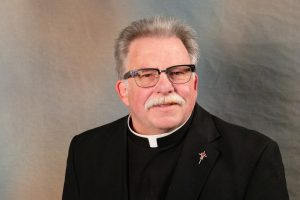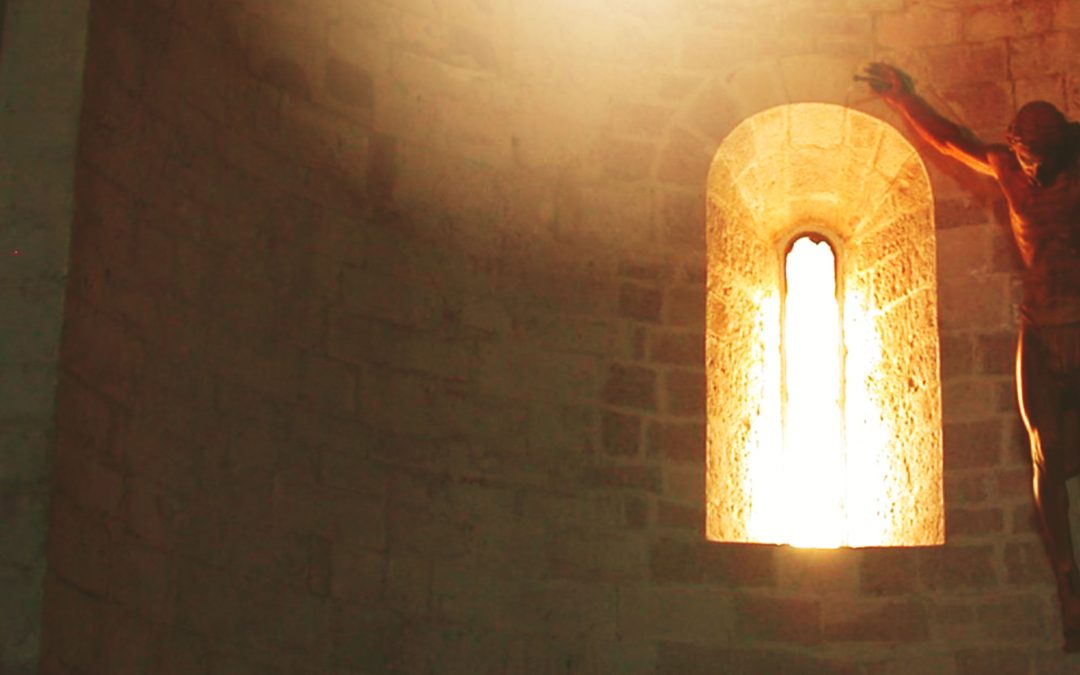By Fr. Tim McFarland, C.PP.S.
Many times, we hear people having an identity crisis or perhaps we have experienced that in our lives. Today’s Gospel introduces us to ways in which people were discovering and growing in their understanding of Jesus. This can also speak to the ways in which we grow in our understanding of who Jesus is for us. Throughout our lives our image of Jesus changes in response to our situation. Old images of Jesus pass and new ones come to be.
Each of us needs to give a personal answer to Jesus’ question: “Who do you say that I am?” Peter’s response is a solid basis from which to begin. Notice that the phrase “Son of the Living God” expresses more richly what “Christ” means. Peter’s faith comes to him as gift from above, not from any mere logic or ingenuity. Why was the blessing given to him in particular? Perhaps because his humble and contrite spirit made him best prepared to receive it? Or because God chooses whom he wills, irrespective of their merits? Jesus entrusts to Peter whatever is meant by the keys of the Kingdom of Heaven. Upon his solid, dedicated faith the Church will always rely, for unity and encouragement.
This Sunday we are presented with two figures who are given keys. The first is Eliakim. Eliakim was the secretary to Shebna, the Master of King Hezekiah’s palace, back in the 8th century before Christ. According to the first reading from Isaiah, Shebna lost favor with the Lord and was replaced by Eliakim. Isaiah says that God placed the keys of the kingdom on Eliakim’s shoulder. He would be Master of the palace and the one through whom others would have to go to get access to the King.
The Gospel reading presents Peter as receiving the keys of the Kingdom of God. Like Eliakim, he would determine who has access to the King. Peter is usually pictured as carrying large keys, representing the authority given to him by the Lord. It is interesting that Peter, whom we know had his weaknesses, receives the keys to the Kingdom. This should give us hope that despite our weaknesses and failures, we too are called to proclaim the Kingdom in word and action.
In these passages, keys are interpreted as signs of authority and that is the foundation for our belief in the authority of the pope, Peter’s successor. I suggest that we might look at the key in a different way. A key can also be seen as a guide, like an answer key to an exam. Our faith in Jesus gives us a key to better understand our lives. We can use the “key” of our Precious Blood spirituality. Our spirituality can give us a key to cope with suffering in our lives, to reconcile differences among people, and to form communities. The scriptures today pose a question, similar to the question posed by Jesus: how does our faith, our spirituality, serve as a key to our lives?
To view the full scripture reading, click here.
![]()

Fr. Tim McFarland, C.PP.S., is the director of ministry and mission and serves on the faculty at Calumet College of St. Joseph in Whiting, Ind.

